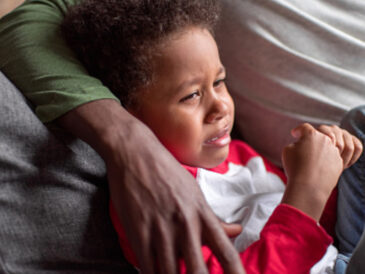By Staff Reporter
While some families were busy planning the most memorable ways to celebrate Father’s Day on 19 June as a unit, many children, who have been raised without the presence of their fathers, wanted to forget that this day even exists. The day was made possible by the generosity of uShaka Marine World, Transnet Durban Transport and Vodacom. According to (Freeks 2013:3; Freeks 2016), absent fathers and fatherlessness is a worldwide phenomenon and a worldwide tendency in communities.
South Africa has the lowest marriage rate on the continent (Richter & Panday, 2006), the second highest rate of father absence in Africa after Namibia (Posel & Devey, 2006), low rates of paternal maintenance for children (Khunou, 2006) and shockingly high rates of abuse and neglect of children by men (Richter & Dawes, 2008). A Stats SA’s a study conducted in 2018 on “Children’s education and well-being in SA” established that black children were least likely to stay with their biological fathers, only 31,7% of black children aged 0-17 years stayed with their biological fathers, compared to 51,3% of coloured children, 86,1% of Indian/Asian children and 80,2% of white children.” While there are numerous challenges faced by fatherless children, fatherless boys, in particular, are likely to face an identity crisis as they try to determine who they are, where they come from, what their lineage/clan is so as to get a sense of belonging. Some also deal with a range of social, psychological and emotional traumas. A newly established NPO, Sivusisizwe Africa Initiative, in partnership with Inkonjane Youth Development, took a group of young boys to uShaka Marine World in Durban, to ensure this group of fatherless boys doesn’t feel left out on the day.
They enjoyed the day watching a dolphins show, an educational penguins show, but the biggest hit was a walk through the massive aquarium which had them so animated and excited they did not want to leave. A discussion over lunch made us realise just how much guidance boys need from their fathers. Despite the fact that they have many unanswered questions about their fathers’ disappearance from their lives, almost all of them stated that they loved their missing fathers.
Mental health for boys and young men is recognised as increasingly important. There’s a need to create safe spaces for boys to air their feelings and know that it is acceptable for men to talk about their emotions. Sivusisizwe and Inkonjane have lined up a number of activities aimed at helping fatherless boys to reach their full potential as productive, caring and responsible citizens.
“We are interested in working with men who are willing to mentor boys in their communities,” said Vuma Mfeka, whose motto is: Leave no one behind. “We challenge you to join us in creating a country-wide community network to confront the most consequential social trend of our time: widespread fatherlessness in our nation and to assist single moms to raise healthy sons,” said Dudu Thabede.
● You can connect with Sivusisizwe Africa Initiative on Twitter @sivusisizwe or on Facebook: Sivusisizwe B2M Africa Initiative.





